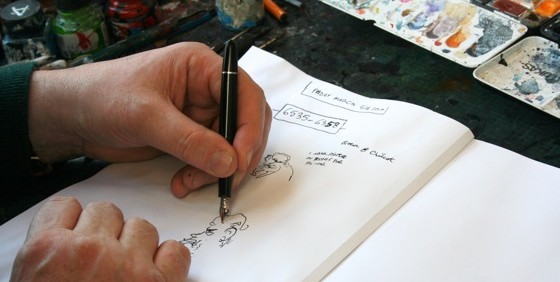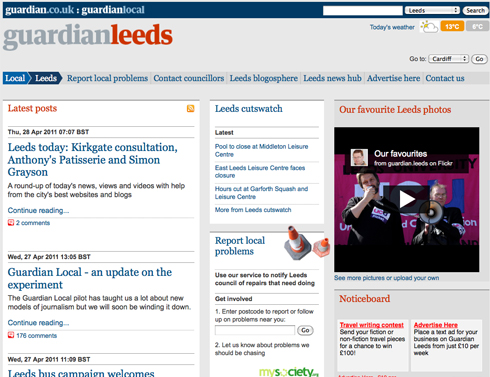
The Sun is to use a mixed model to charge for online content, according to News International head of marketing Katie Vanneck-Smith, although no date has been set for its introduction.
Speaking last night at a panel debate about paywalls and digital journalism models at City University London, Vanneck-Smith’s admission seemed to mark a shift in News International’s ‘iron-curtain’ approach to paywalls on it’s news sites.
She told the audience at the debate:
I think we all said that the models are mixed. So there are no plan at the moment, there’s no date, for when the Sun will have paid as part of its model for it’s digital website in terms of its news access.
When questioned by Media Guardian editor Dan Sabbagh about whether this marked a change in News International thinking, Vanneck-Smith replied: “We will introduce paid for content and services on the Sun in the future, I couldn’t tell you what the date is.” She would not confirm whether this would be in the form of a paywall, but earlier in the event she said that the newspaper was “of the view that mixed models and blended models are right and the best way to pursue, I think, a very vibrant and exciting journalism future for this country”.
Almost a year on from the Times and Sunday Times going behind a paywall, Vanneck-Smith said both were making more money digitally from their 79,000 subscribers than pre-paywall, when they had 20 million browsers.
Dan Sabbagh, the Guardian‘s media editor, revealed the newspaper would pursue a free content model and would move towards becoming an aggregator of news and opinion.
We want to become, as well as a provider of content, a content aggregator. People are very keen on participating with the Guardian, they want to be re-published on our site and they’d like us to sell their advertising.
We think it’s critical that we’re part of the conversation that people are part of.
And while I don’t have any big philosophical rejections to what the Times and Sunday Times are trying to do commercially, it seems like a perfectly proper strategy to pursue, I’m less convinced by the severity of their paywall model. In effect, the Times and Sunday Times journalism is outside the journalistic conversation
Sabbagh also revealed the Guardian site had its best day ever had best ever day when Osama Bin Laden died, resulting in 4.5 million unique hits compared with a daily average of 2.4 million uniques.
According to Geordie Greig, the editor of the Evening Standard, the paper is on course to make a profit by 2012, and would consider a paywall if he saw it worked elsewhere.
I think we will probably be on the verge of profit next year. Now I’m not saying that to say we’re better than them [other newspapers], I’m really it because we’re in a very difficult industry to make money.
I think everyone applauds the attempt by News International to make money, we really, really hope it works. And I don’t think there’s anything wrong in saying, if it does, we’re all going to copy it, that’s what happens in industry where there are leaders.
The Standard has experienced a huge turnaround in fortunes since going free back in 2009. Greig revealed the move had allowed the paper to charge 150 per cent for advertising space compared with old prices. Greig explained:
By changing our economic model, we were able to survive and thrive. Suddenly we become bigger and by bigger meant we could earn bigger sums of money.
We were losing a ton of money, we were losing between 10-20 per cent of our readers every single year and our debt was running into tens of billions potentially a year and this was unsustainable.
We made a decision to go free and the great thing was that made two competing papers in the evening leave the market so that made us in a more dominant.
Grieg also revealed prior to going free, the Evening Standard sold 700 copies at Oxford Circus. Now, it distributes 32,000 copies from that location on a daily basis.
Stevie Spring, chief executive of Future Publishing, suggested the problem with charging for content online was that it involved a change in mindset for users used to not paying for news, likening broadband access to an all-you-can-eat buffet.
The difference in a digital world is fewer and fewer people brought up in a world where everything online is free, there is an expectation of free. Or it’s not an expectation of free, but everybody has grown up believing that once you’ve paid for your broadband access, that’s an all-you-eat-buffet, that’s my library card, everything else is free.
You have a real disincentive to pay once you disaggregate the content from it’s packaging. When you have a physical artifact, a real DVD or real magazine or a real piece of paper, once I disaggregate the content from its pack, people aren’t sure what the value of the content in isolation is.
They expect it to be much cheaper because of course there is a marginal cost of distribution. However, what people aren’t seeing is the increasing cost of creation because actually it costs more to fulfill expectations in a digital world when people want 24/7, up the second with audio visual adapted and amended for every screen. So cost of production goes up.
Dominic Young, former director of strategy and product development for News International, said it was up to media organisations to innovate and find a solution.
The challenge for the industry and for everybody is to identify new models and pursue them with gusto. In that sense, I think what the Times and Sunday Times are doing is really important.
It’s no surprise to me that the companies making the most money out of the internet are companies which invest nothing in content. The companies which make the most money out of journalism directly and companies which tend to be parasitic aggregator, many of them just straightforward feeds.
On suggestion put forward for the Sun by Roy Greenslade in his Guardian column today, in response to last night’s debate, was charging for the newspaper’s popular online bingo games while keeping the rest of the site free of charge.



